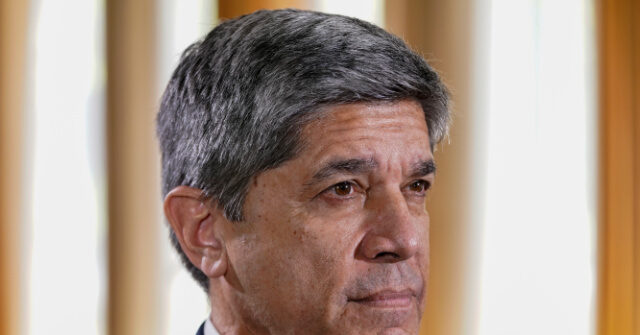On December 1, 2016, the Cuban government reacted to President-elect Donald Trump’s controversial promises to initiate mass deportations, including those involving Cuban nationals. Cuban Deputy Foreign Minister Carlos Fernández de Cossío remarked during a press conference that Trump’s proposals were not only “unrealistic” but also “unfair.” These comments followed a meeting between U.S. officials, led by State Department Deputy Assistant Secretary Eric Jacobstein, and representatives of the Cuban regime. The Deputy Foreign Minister specifically critiqued the prospect of mass deportations from the United States to Cuba, arguing that such actions would neither align with historical U.S. immigration policies nor the existing migration agreements between the two countries.
Fernández de Cossío emphasized that the U.S. had, for decades, maintained a policy that favored Cuban migrants. He articulated that potential deportations would involve uprooting families and disrupting lives that had already been established in the U.S. Many Cubans had built their lives there, securing jobs and forming relationships. The Deputy Foreign Minister’s remarks underlined a call for adherence to existing agreements on migration while rejecting the notion of massive deportations that could conflict with the established framework of bilateral relations.
During the discussions, both U.S. and Cuban representatives acknowledged their cooperation regarding migration issues, recognizing the mutual national security benefits that arose from such negotiations. The Cuban delegation highlighted the importance of adhering to the established migration agreements, urging both sides to engage in a comprehensive and impartial manner. Furthermore, the Castro regime criticized U.S. policies that allegedly encourage irregular migration, re-emphasizing their stance on the importance of maintaining friendly and fair immigration practices.
The Cuban government also took this opportunity to voice its opposition to the U.S. embargo, asserting that it had significantly tightened since 2019 and contributed to the ongoing migration crisis. This has caused a surge of Cubans seeking refuge in the United States, thereby making migration a pressing topic of bilateral discussions. The Cuba authorities called for the restoration of non-immigrant visa processing at the U.S. Embassy in Havana, addressing concerns regarding the treatment of Cubans returning from the U.S. after visits.
In 2022 alone, Cuba experienced a humanitarian crisis that led to over 850,000 Cubans fleeing to the United States, in addition to those utilizing the Biden administration’s “Humanitarian Parole” program. Complaints surfaced within the Cuban diaspora concerning individuals affiliated with repressive communist regimes gaining access to the U.S. through immigration programs, highlighting the complexities and concerns surrounding current migration policies. This indicated a broader issue within the spectrum of U.S.-Cuba relations and the treatment of those fleeing political repression.
Amid these discussions, the U.S. Embassy in Havana stressed its commitment to addressing various immigration concerns, such as family reunification and the reinforcement of human rights and fundamental freedoms in Cuba. High-ranking officials, like Assistant Secretary of State for Western Hemisphere Affairs Brian Nichols, emphasized the significance of curbing irregular migration by reinforcing successful immigration policies. Meanwhile, the Cuban government maintained that, regardless of the outcome of U.S. elections—specifically referencing Trump’s victory in 2024—it would continue to position itself as a persistent challenge to American interests. The enduring complexities, vulnerabilities, and tensions of U.S.-Cuba relations remain at the forefront as both nations navigate their diplomatic partnerships and immigration policies.

